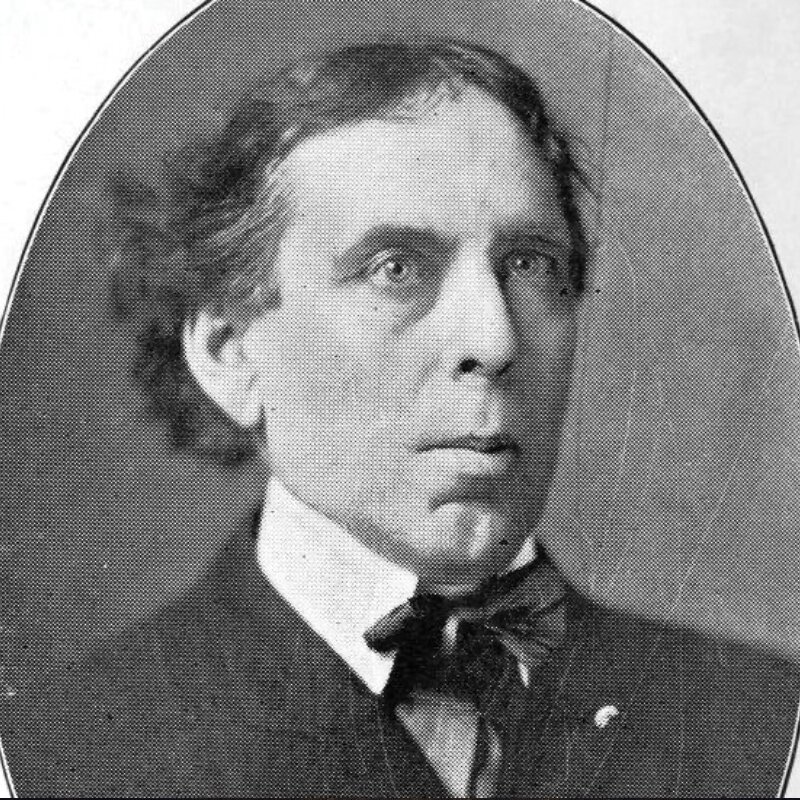The narrator has certain ulterior motives. We learn more about Archibald’s back story. Boo Boo can no longer be controlled because she has been freed by the tentacles of imaginary bears. However, at one point, her face will be on fire. The doorbell rings. Who could it be?
Series
The Crucible as a Oneman Show (Pt 2)
What were those girls brewing in the woods? What secret longings burn in Abby’s heart? Find out in this second installment of the Crucible as a Oneman Show, our Bedroom Theater production. The girls are up to something, but what will come of it? And what of John Proctor and his wandering stare? As read by Mutable’s own Gabriel Boyer
Bedroom Theater began when my roommate changed the light bulb in my bedroom and ended in a five-hour crying spree in the Nevada desert. There is no audience, only people performing for each other. For more on this, please see Welcome to Weltschmerz.
Episode 25
Simone Fairfax is possessed by the devil, and a stranger has arrived at the Lady Jane Grey College for Little Ladies, but right now we are going to take a trip down memory lane to Headmistress Ursula’s young adulthood in Shanghai and the stranger she met and how he changed her life, and not for the better!
A new episode of Twilight at the Lady Jane Grey College for Little Ladies aired on a semi-weekly basis.
The Crucible as a Oneman Show (Pt 1)
Arthur Miller, wherefore art thou? Very probably turning over in your grave at this minimalist interpretation of your classic play by Mutable’s own Gabriel Boyer, done in the same manner as it was done for Bedroom Theater some six years ago to an audience of two. This is the first of two installments of the Crucible. Enjoy the antiquated language, the muppet-like voices, the Morton Feldman score, and general witchery with the knowledge that you are safe several centuries in the future of these dramatically reproduced historical events, a time when you can laugh, cry, and reproduce at your leisure. To hear the second installment go here.
As read by Mutable’s own Gabriel Boyer.
Bedroom Theater began when my roommate changed the light bulb in my bedroom and ended in a five-hour crying spree in the Nevada desert. There is no audience, only people performing for each other. For more on this, please see Welcome to Weltschmerz.
Episode 26
Simone still remains in the infirmary, her mind becoming less and less her own, and more and more a place populated by demons, while Boo Boo and the boy from the preparatory school down the lane look on, but we will not witness this scene today because the narrator is currently in the midst of a struggle himself, a polite conversation between his own will and that of the Dark Lord, while the Headmistress and her staff give Jack’s childhood friend a warm welcome in the front hall.
A new episode of Twilight at the Lady Jane Grey College for Little Ladies aired on a semi-weekly basis.
Video: The Governator!
Perhaps the most famous Austrian next to Hitler is Arnold Schwarzenegger, current governor of California, former heavyweight champion of the world, and Hollywood film star, known for such memorable lines as, I’ll be back, and more recently for lines like, She’s either Puerto Rican, or the same thing as Cuban, I mean they are all very hot. They have the, you know, part of the black blood in them and part of the Latino blood in them that together makes it, while talking about California Assemblywoman Bonnie Garcia, the lone Latina Republican in the Legislature, or, To those critics who are so pessimistic about our economy, I say, Don’t be economic girlie men, but back in the late 90’s, when none of us foresaw this turn in Schwarzenegger’s career, he was an idol to some. (True, he’s still and idol to some, but who are these people, and why?)
I remember, a friend of mine, Chris Huggins, had a Scharzenegger concept band, in which he sang songs of tribute to the man, and did body-building training throughout the show, a wiry little redhead with a Schwarzenegger mask and t-shirt. He was my roommate at the time and would occasionally break one of the panes in my wall of windows facing the hallway in the midst of a demonstration of his skills as a black belt, but I’ll never forget that performance he did in a loft in Brooklyn, his legs straddling the weights bench, a lifesize Schwarzenegger cut-out by his side, or how I vomited through a woman’s underwear that night because she wasn’t quick enough climbing off the toilet seat.
It was from Chris that I first heard about Pumping Iron, the 1977 documentary about Schwarzenegger and the larger world of competitive body-building. He was inspired by the innocent, youthful, athletic Arnold, waxing poetic when he started in on the man’s great feats of the past. He talked of Schwarzenegger quite a lot in those days, as Arnold were indeed Hercules or Conan, as opposed to a Kindergarten Cop, and eventually Governor of California, although perhaps Schwarzenegger’s shift towards politics began with True Lies. Enjoy the peak into a younger, kindler, and gentler Schwarzenegger below.
In the Mutableye is a segment that sometimes showcases something interesting that is happening somewhere in the world at this moment, and sometimes showcases some fad or person from the past that we here at Mutable acknowledge is still cool s**t.
Requiem for Christian Loidl
William Levy
In a way, the Austrian poet Christian Loidl’s demise was an Icarus action, radical as was his life. Chris’ partner wrote me—“It seems that he had taken mushrooms and jumped out the window, out a of a closed window, so he had to break the glass first, and then he fell or jumped and broke his neck. That’s all.”
People who are afraid of heights are not afraid of accidentally falling. They are terrified of their inexorable urge to jump, to fly, an abyss-merge-craving-rapture as a triumphant exit strategy to Zion, the highest region. Chris called himself an “airpoet,” he lept at life—in the faith that he could grab it. He believed: Let’s be realistic and demand the impossible; and, The only thing worth contemplating is that which cannot be contemplated.
Read MoreWittgenstein's Tractatus Logico-Philosophicus
as translated by Charles Kay Ogden
The family of Karl Wittgenstein, who was one of Austria’s richest men when he died, in 1913, may deserve some gloomy sort of prize, the Palm of Atreus, perhaps. His youngest child, the philosopher Ludwig Wittgenstein, once asked a pupil if he had ever had any tragedies in his life. The pupil, evidently well trained, inquired what he meant by “tragedy.” “I mean suicides, madness, or quarrels,” replied Ludwig, three of whose four brothers committed suicide, two of them (Rudi and Hans) in their early twenties, and the third (Kurt) at the age of forty. Ludwig often thought of doing so, as did his surviving brother, Paul. A budding concert pianist when he lost his right arm to a Russian bullet, in 1914, Paul was imprisoned for a time in the infamous Siberian fortress where Dostoyevsky had set his novel “The House of the Dead.” Ludwig later claimed to have first entertained thoughts of suicide at around the age of ten, before any of his brothers had died. There were three sisters: Gretl, Helene, and Hermine. Hermine, the eldest child (she was born in 1874; Ludwig, the youngest, arrived fifteen years later), and the guardian of her father’s flame, never married. Helene was highly neurotic, and had a husband who suffered from dementia. Gretl was regarded as irritating by most people, including her unpleasant husband, who committed suicide, as did his father and one of his aunts. Bad temper and extreme nervous tension were endemic in the family. One day, when Paul was practicing at one of the seven grand pianos in their winter home, the Palais Wittgenstein, he leaped up and shouted at his brother Ludwig in the room next door, “I cannot play when you are in the house, as I feel your skepticism seeping towards me from under the door!”
Read MoreMonochrom: The Art of the Prank
Austrians in April
Monochrom purports to be what hydrogen atoms are capable of when you give them 15 billion years to evolve, but what does this mean? For one thing, we know that this means an arts collective where all members work together to create multi-media projects that are often presented as absurdist attacks. From Marxist puppet shows to Nazi petting zoos, a virtual soviet village called Soviet Untersoegersdorf to bar-bots and Arse Elektronica. Projects abound at monochrom, but monochrom is also a blog about the political and the pop, the absurd and the outlandish, e.g. Indiginous leaders brought to Quito to watch “Avatar”.
Considered Austria’s “art-pranksters”, they call themselves an “art-technology-philosophy group of basket weaving enthusiasts and theory do-it-yourselfers,” but who are they really, or are they even really at all? In 2002 they were invited to represent Austria at the São Paulo Art Biennial, and decided to manufacture a non-existent artist to represent them for the event. “People would ask, ‘So where is Georg Paul Thomann? I’d like to meet him again; I think I met him twenty years ago at an art fair in Dusseldorf,’ or whatever. We would reply, ‘He’s just sitting in his hotel room. We’re rather happy that he doesn’t show up, because he’s quite an asshole.'”
Read MoreThis is Not a Review: of Michael Haneke's Perverse Cinema
Gabriel Boyer
I was working at the Film Forum in NYC when the original Funny Games was released—as in the one starring Susanne Lothar and not the shot for shot remake starring Naomi Watts. This was in 1997 and here in America we were still suffering from a quaint post-apocalyptic ethos in which the world as we know it was bound to end any moment now. We were hopeful that things as they stood couldn’t go on much longer. And then we saw Funny Games.
Funny Games is a perverse vision largely because it presents a human view of persons we at the time could only despise and envision skewered on the meat-hooks of industry. Georg and Anna are upper middle class and middle of the road, off to their summer retreat when two unexpected guests arrive at their door asking for eggs, two youths wearing white gloves who they were introduced to just a while earlier by an oddly anxious neighbor. The youths proceed to break the eggs, and work their way into the home, first through a play-acted buffoonery and then through acts of violence, sadistic games, the family strung up and forced to go along with their captors so as to keep each other alive just a little while longer.
We were those youths.
Read More3 Pieces by Gert Jonke
as translated by Vincent Kling
Gert Jonke, who died last year just shy of 63, depicted with grace and mad humor what his fellow Austrian Hermann Broch once called the “jolly apocalypse” (“die fröhliche Apokalypse”) that accompanied the collapse of Europe from 1914 to 1945 and that’s anything but past and gone in the era of the European Union. The three short works here are a farewell tribute meant to show various related aspects of Jonke’s art. The first is a letter to his baby son Hans, who died suddenly at age four months, and is taken from a book that mingles fiction, autobiography, reminiscences, tributes to friends, and brilliant essays on music. “Hyperbole 1,” from a series of snapshots or vignettes in drama form called Insektarium, is one of several studies by Jonke showing the social origins of perception and memory. In his last few years, “Leavetaking” became Jonke’s much-anticipated signature piece.
Read MoreZOCK: Outlaw Manifesto of the Age
William Levy
My first contact with the Vienna Action Artists was through the DIAS, or Destruction In Art Symposium held in London during the autumn of 1966. Gunter Brus, Otto Muehl and Hermann Nitsch, and also Gustav Metzger, received a lot of publicity during this season. By art critics and underground newspapers, of course. Why not? Jean Tinguely’s Homage to New York blew itself up at the Museum of Modern Art in 1960, watched by a distinguished audience. Robert Rauschenberg had just spent a month slowly erasing a Willem de Kooning drawing. First there were Constructivists, then there were Destructionists. Yet even Time magazine was not outraged. In the article they wrote about these events, the Wiener Aktionismus, or Vienna Actionists, were grouped favorably within the in vogue international Happenings movement. And it became well known among certain circles that the then famous Pete Townsend, lead guitarist of the pop group The Who, had seen the DIAS actions. He adapted them to his guitar smashing performances that became a moving icon, the kinetic ideogram, of a widespread artistic ferment against the frame, the gallery, the museum, all received genres and the proscenium itself in its many manifestations. Transformed into a swank craze, indeed, the influence of the Vienna school became almost a leitmotiv of London’s Swinging sixties. Destructive art was featured again, and used as such, in the nightclub scene in Michelangelo Antonioni’s film Blow-Up. Jimi Hendrix showcased destruction art in his Monterey Festival performance.
Read MoreEpisode 27
The year is 1903 and something has happened to the narrator, and Satan is very definitely in control of the story. Simone is floating above her bed and saying horrible things in a strange voice, while down below Butcher Billy is receiving a warm welcome in the front hall. Also, in case you’ve forgotten, Grammar Instructor Gundrun is slowly transforming into a more demonic being, and Handyman Jack is a cannibalist. At some point in the below episode, Archibald the Professor of Arcane Knowledge uses his powers to transport Butcher Billy out onto the moors. Keep this in mind.
A new episode of Twilight at the Lady Jane Grey College for Little Ladies aired on a semi-weekly basis.
Providence
R. Sachs
Something about the fact that each of us is the product of several billion years of successful reproduction tempts me to believe that there is a kind of providence at work in mating. That for each of us, our perfect mirror exists. For the fat, the ugly, the hopeless, the deranged there is their compensatory fetishist and mate. Me, I’m lazy—or something like it. I have my interests, but I pursue them with the intensity of one watching goldfish. I think about having a perfect sex life, what it might be like, how it work, but I do little to make it a reality. Do I really want to spend that much time brushing my teeth, washing my hair and combing my pubes? And so I have fallen into a kind of romantic complacency—a sort of challenge to the women of the world that they will have to be more desirable than a night alone, or I will remain, prized gem, undiscovered.
Read MoreEpisode 28
The Narrator is acting strangely, but why? Don’t worry. It’s unimportant. Even if you think it’s actually the most important thing, you are quite wrong. Actually, what you should be paying attention to is the portal that’s opened up behind the young scholar Simone’s head for it is a portal into Hell itself, one that is crying out for it will have the girls Simone and, dare I sat it? Boo Boo?
A new episode of Twilight at the Lady Jane Grey College for Little Ladies aired on a semi-weekly basis.
How is here not there when there is?
Today is a free for all of whatever music we feel like playing. If you have a request just send it psychically to us in the past, while here in the present, Gabe will be reading from various situationist comic strips for Book You! this week, not to mention Gabe’s Guide to Getting Lost. Also, this week, the pipes are angry because Gabe is about to head out to Eugene, OR, and Malcolm is about to go on tour (as Lineland) and with Animal Hospital, all of which means this will be our last podcast (though episodes of Twilight at the Lady Jane Grey College for Little Ladies will continue to be posted weekly for those of you who have become addicted to this touching tale), which means that at last we are free, and we can hardly see in front of us. Indeed.
The Mutable Radioshow is a weekly spot in which Misters Felder and Boyer play their favorite melodies from years gone by, as well as a few new tunes from out the library. Topics are discussed, such as what is there to hate? A new episode of Twilight at the Lady Jane Grey College for Little Ladies is aired each week.
Recorded entirely at Mutable Sound Studios, this weekly adventure into sound will also feature new Mutable Sound acts you have just been dying to hear! As well as the squiggly sounds of yesteryear.
View all Mutable Podcasts
Where did you lose your third arm?
This is the podcast you’re going to want to listen to only once, those albums you get at the record store and you’re like whoa, and then you never listen to them again. These songs are like strange dreams that you tell your friends, and make Gabe think of the strangeness of life and the strangeness of fiction, about who we are, and we’re going, and why we’re going there, which may be partially because Gabe is about to move to Eugene, OR to work as a wildland fire-fighter, which he really thought he would never do a second time, while Malcolm once went to a laser light show which was terrible, but he’s glad he went the one time to get it over with, although most of Gabe’s stories of things he is glad he only did once are not for virgin ears and so if you want to hear his humiliating tales write to mail@mutablesound.com. At some point in the hour Gabe has a breakdown concerning the fact that he and Malcolm in fact listen to many of these one-time albums over and over again, and Malcolm cannot believe that Gabe is actually afraid that Van Dyke Parks could perhaps listen to this podcast and come away with the belief that we do not hold him in the highest esteem, which would be false. This week for Book You! we read I Was a Teeny-Bopper for the CIA, by Ted Mark. Listen to the podcast from start to finish, and you’ll hear Gabe use the word “periphery” once too often.
Menehune Santa
The Mutable Radioshow is a weekly spot in which Misters Felder and Boyer play their favorite melodies from years gone by, as well as a few new tunes from out the library. Topics are discussed, such as what is there to hate? A new episode of Twilight at the Lady Jane Grey College for Little Ladies is aired each week.
Recorded entirely at Mutable Sound Studios, this weekly adventure into sound will also feature new Mutable Sound acts you have just been dying to hear! As well as the squiggly sounds of yesteryear.
View all Mutable Podcasts
What happened then?
Another themed podcast this week. This week we are going to be doing story songs, or songs that tell a story. We live lives that are stories in themselves, although the never-ending story, or rather eventually it ends but Gabe won’t be around to see the credits, but there sure are a wide range of story songs, from first person story of my life sort of thing, to third person, to back and forth dialogue, and we explore them in traditional british folk, country western, soul music and on the whole a lot of sad songs, though sometimes these tears aren’t tears of sorrow, but tears of joy at some absurd rendition of another’s suffering, from death row to blindness to those who are checking out when others are checking in. She was supposed to be at home minding the kids, but alas she was at the motel. Gabe and Malcolm argue about whether Famous Blue Raincoat qualifies as a story song, and then of course, there’s our own story, Twilight at the Lady Jane Grey College for Little Ladies, still running with episode 22 this week, in which you’ll find demon possession on all sides and a tryst interrupted midcoitus, and for Book You! this week Gabe reads from a collection of short stories by George Saunders called In Persuasion Nation.
The Mutable Radioshow is a weekly spot in which Misters Felder and Boyer play their favorite melodies from years gone by, as well as a few new tunes from out the library. Topics are discussed, such as what is there to hate? A new episode of Twilight at the Lady Jane Grey College for Little Ladies is aired each week.
Recorded entirely at Mutable Sound Studios, this weekly adventure into sound will also feature new Mutable Sound acts you have just been dying to hear! As well as the squiggly sounds of yesteryear.
View all Mutable Podcasts
What up?
In your headphones, in your speakers, in your heart, we play music. This week is dedicated to hip hop, so if you don’t like the rap music you might want to skip this week, but if you do, you might want to turn it up! For this week on Book You, Gabe reads from I Paid My Dues by Babs Gonzales. Gabe wants to send his throat to its room without dinner. We would like to put out a disclaimer this week, some listener discretion is advised.
The Mutable Radioshow is a weekly spot in which Misters Felder and Boyer play their favorite melodies from years gone by, as well as a few new tunes from out the library. Topics are discussed, such as what is there to hate? A new episode of Twilight at the Lady Jane Grey College for Little Ladies is aired each week.
Recorded entirely at Mutable Sound Studios, this weekly adventure into sound will also feature new Mutable Sound acts you have just been dying to hear! As well as the squiggly sounds of yesteryear.
View all Mutable Podcasts
What about you?
Don’t let me down tomorrow, you. We’re living in a fantasyland of our own creation made up of nostalgia. What about you? Gabe can’t wait till we get to hell. What about you? On the 10th of April Gabe’s book A Survey of My Failures This Far will be released and on the 1st Big Trouble in Little China by the Liszts will be released. What about you? This week’s Book You features a reading from David Lee Roth’s autobiography, Crazy from the Heat. Felder of the Dark Cloth, what about you?

























